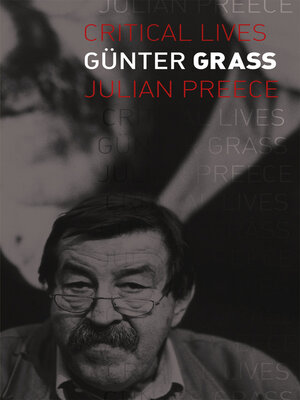
Sign up to save your library
With an OverDrive account, you can save your favorite libraries for at-a-glance information about availability. Find out more about OverDrive accounts.
Find this title in Libby, the library reading app by OverDrive.



Search for a digital library with this title
Title found at these libraries:
| Library Name | Distance |
|---|---|
| Loading... |
Günter Grass was Germany's foremost writer for more than half a century, and his books were and remain best-sellers across the world. The Tin Drum was made into an Oscar-winning film in 1979, and the memoir Peeling the Onion astounded readers by revealing Grass had been drafted into the military wing of the SS, a ruthless component of the Nazi war machine, in the closing months of World War II. Grass also wrote memorably about the German student movement, feminism, and German reunification, and was a key influence on magical realist authors such as Gabriel García Márquez and Salman Rushdie, as well as on the popular novelist John Irving.
Günter Grass is the first biography in English of this Nobel Prize–winning writer. Julian Preece introduces both Grass's key works and political activities, chronicling his interaction with major figures from literary and public life like holocaust poet Paul Celan, Chancellor Helmut Kohl, and cofounder of the Red Army Faction Ulrike Meinhof. From Grass's campaigning as a citizen for the anti-Nazi resistor and Social Democrat leader Willy Brandt to his more recent invectives against free-market capitalism, Preece places Grass's fiction and public work in the context of Cold War European politics and post-unification Germany, painting an indelible portrait of a writer who reinvented the postwar German novel and redefined the role of literary commitment.
Günter Grass is the first biography in English of this Nobel Prize–winning writer. Julian Preece introduces both Grass's key works and political activities, chronicling his interaction with major figures from literary and public life like holocaust poet Paul Celan, Chancellor Helmut Kohl, and cofounder of the Red Army Faction Ulrike Meinhof. From Grass's campaigning as a citizen for the anti-Nazi resistor and Social Democrat leader Willy Brandt to his more recent invectives against free-market capitalism, Preece places Grass's fiction and public work in the context of Cold War European politics and post-unification Germany, painting an indelible portrait of a writer who reinvented the postwar German novel and redefined the role of literary commitment.







